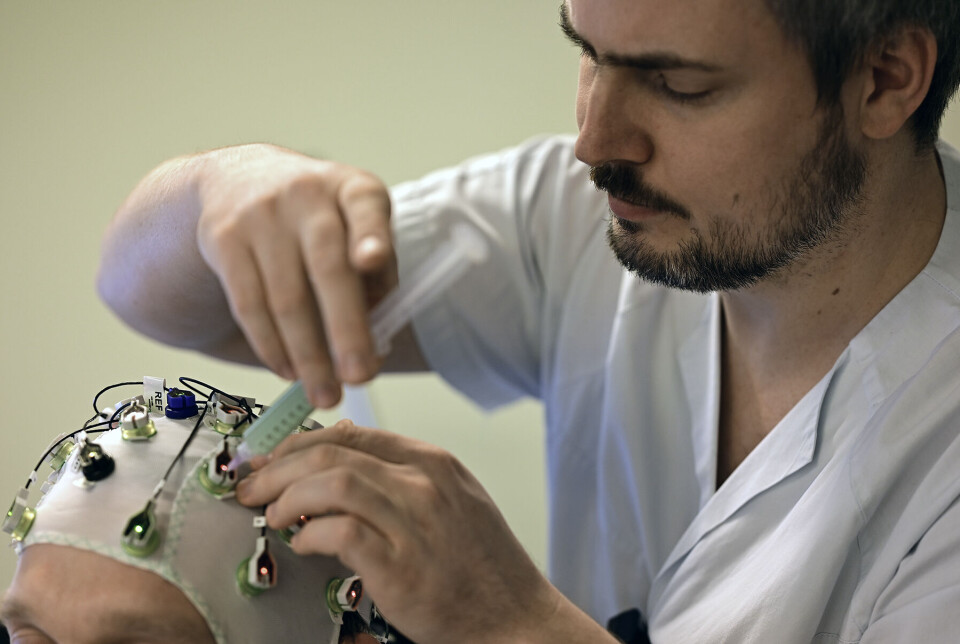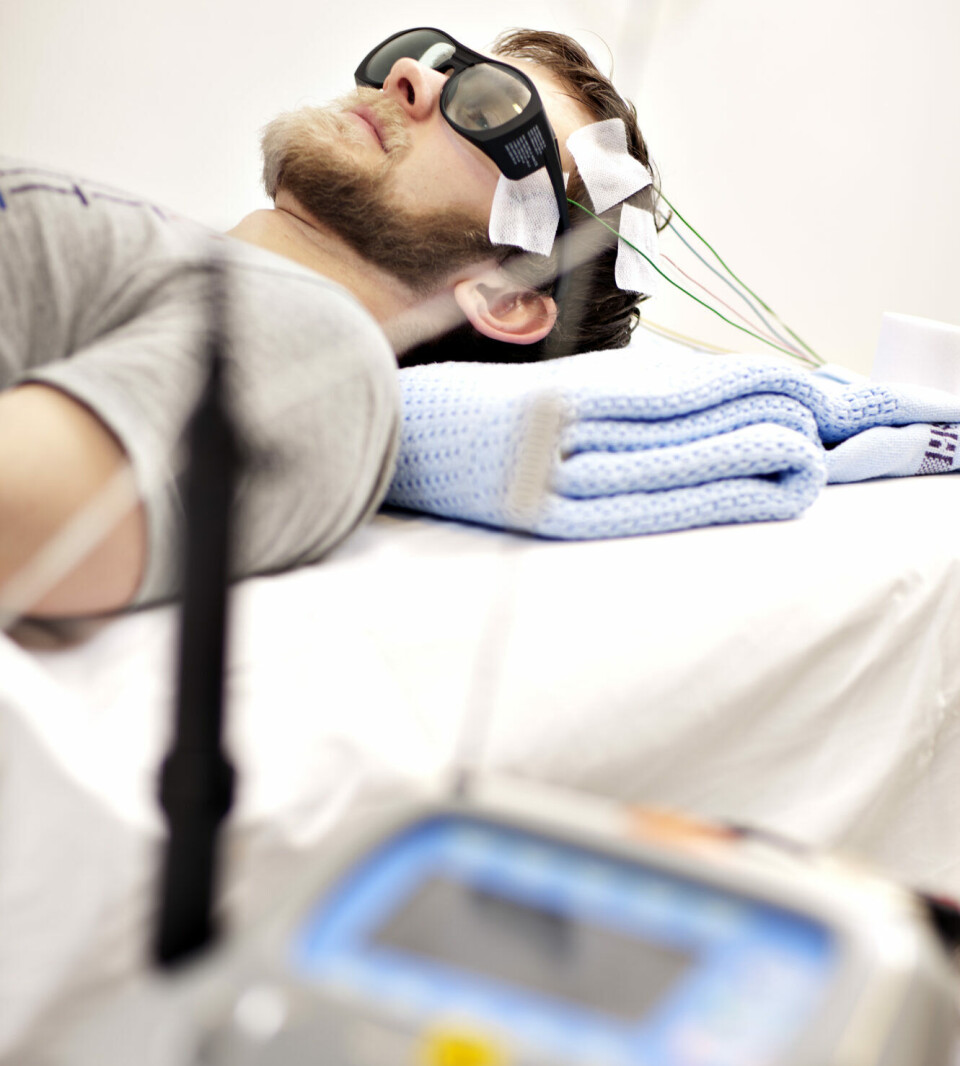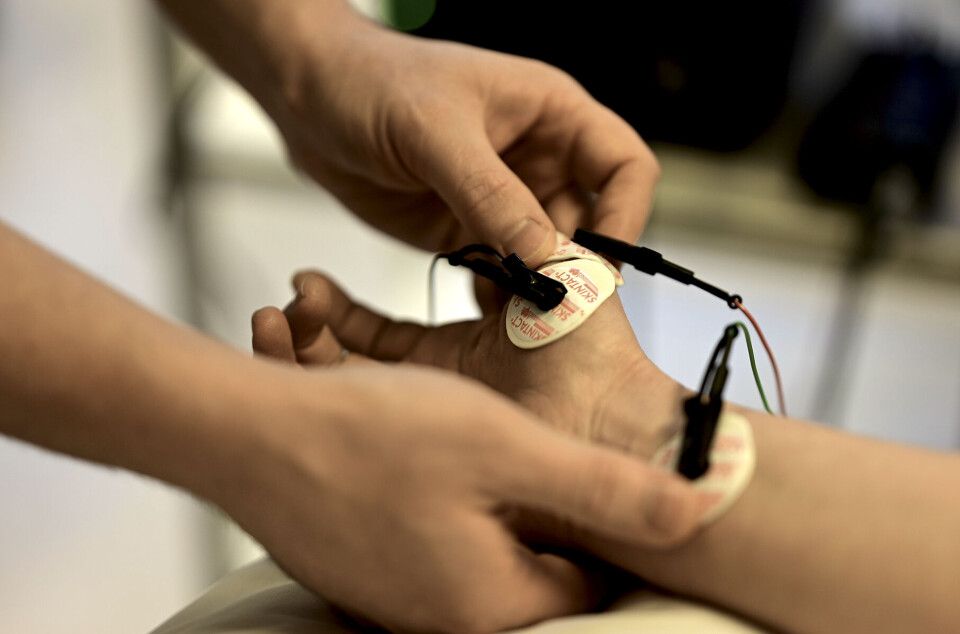THIS CONTENT IS BROUGHT TO YOU BY NTNU Norwegian University of Science and Technology - read more
Why are migraine symptoms worse in patients who get little sleep?
The brain mechanisms that are supposed to reduce pain do not function as effectively in people with migraines when they have not had enough sleep.

For the first time, researchers have studied what happens in the brains of people with migraines when they haven’t had enough sleep.
Migraine is characterised by pulsating headaches, light sensitivity, vomiting, nausea, and increased sensitivity to sound. The condition affects about 15 per cent of the Norwegian population, similar to rates worldwide.
Migraine is the leading cause of disability in people between the ages of 16 and 50.
“These are important years in one’s life when it comes to school, higher education, and career. Migraines are a great burden for both the individual and society. Many people who struggle with migraines are away from work a lot. This is a very common disorder that we need to understand better so that better treatment can be provided,” says Petter Moe Omland, a medical doctor and researcher at NTNU.
Migraines are still a mystery
Omland and his research team have now discovered a new piece of the puzzle about how the migraine brain works.
“It's well known that sleep can relieve migraine headaches, migraine attacks can start during or after sleep, and many people with migraines say that disturbed sleep triggers attacks,” he says.

Migraine patients also have reduced sleep quality, more daytime fatigue, and more sleep disturbances compared to people without headaches. Insomnia is also associated with an increased risk of developing migraines.
Many migraine sufferer experience pain from touch during attacks and have heightened sensitivity to light, smell, and touch even between attacks.
“Now we know more about the link between pain and sleep,” says Omland.
Sacrificed sleep
The test subjects sacrificed a lot to help the researchers find new answers. During the course of two studies, 140 people sacrificed sleep and had their brain’s nervous system studied and measured.
The tests involved quick and safe measurements of brain activity. In the most recent publication from these studies, the participants were subjected to pain so that researchers at NTNU could better understand the link between sleep and migraine.
The participants were divided into two groups: one group with migraines and another group of healthy control subjects. The study was blinded, which means that the researchers did not know which participants belonged to which group.

Participants were examined twice on different days. They were examined once after two nights of normal sleep, and once after two nights of reduced sleep. All participants were required to keep a sleep diary and wear an electronic device that tracked their sleep patterns.
During the tests, participants wore a cap fitted with EEG electrodes. These electrodes measured brain activity in response to two types of pain stimulation – one using a laser, the other using electrical stimulation.
This allowed the researchers to track how the brain responded to pain signals after a lack of sleep.
Got migraines himself
“None of this was dangerous, but it was clearly uncomfortable. People with migraines are incredibly good at volunteering for trials because they want there to be more knowledge about the disease,” says Omland.
In the study, the researchers found that the cerebral cortex in people with migraines reacts differently to pain compared to others when they have not had enough sleep.
In another recent study, researchers showed that lack of sleep affects systems in the brain that slow down the activation of nerve cells in those who have migraines.
These systems may be the reason why people with migraines process pain and other sensory input differently than those without the condition.
“The mechanisms that are supposed to reduce pain don't work quite as in people who don't have migraines. The pain isn't dampened as much as in healthy people,” says Omland.
Omland himself did not have migraines when he started studying them, but developed them for a period.
“I had small children, worked as a doctor, and was a researcher as well. After a long period when I slept very little, I started waking up with severe migraine attacks in the middle of the night. It was very troublesome. My brain obviously couldn’t stand sleeping so little for a long time. The fact that I got these headaches myself became an extra motivation to understand more,” he says.
References:
Mykland, M.S. Migraine and Sleep: The effects of insufficient sleep on brain function in migraine, Doctoral thesis at NTNU, 2023.
Omland et al. Migraine and insufficient sleep: The effect of sleep restriction on nociceptive evoked potentials in migraine, Cephalalgia, 2025. DOI: 10.1177/03331024251329400
More content from NTNU:
-
Researchers now know more about why quick clay is so unstable
-
Many mothers do not show up for postnatal check-ups
-
This woman's grave from the Viking Age excites archaeologists
-
The EU recommended a new method for making smoked salmon. But what did Norwegians think about this?
-
Ragnhild is the first to receive new cancer treatment: "I hope I can live a little longer"
-
“One in ten stroke patients experience another stroke within five years"





































